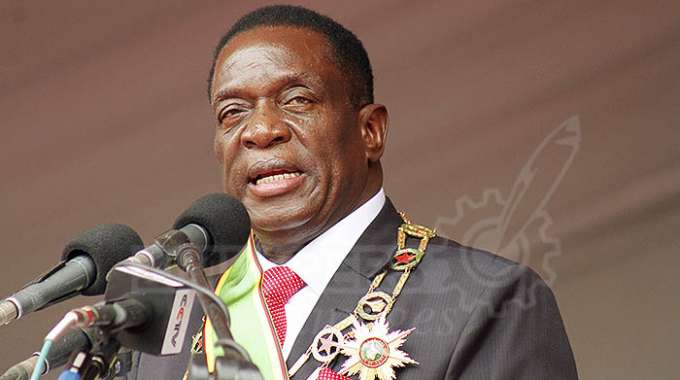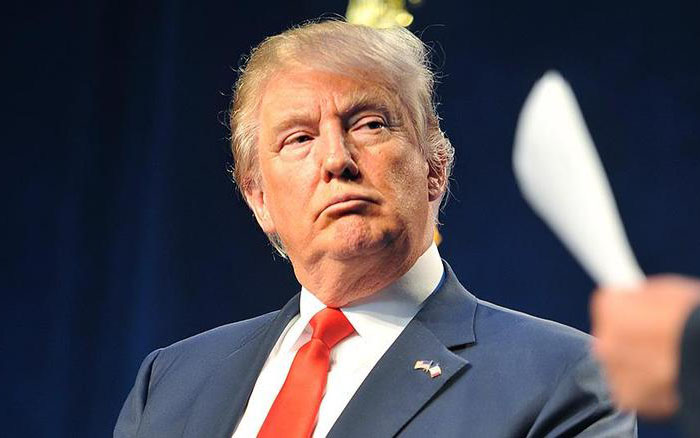Challenge of talk radio in Zim

Tafataona Mahoso Correspondent
One of the consistent and persistent tenets in the ethos of the new era led by President Emmerson Mnangagwa and his team is a call to citizens to shun laziness, to be hard-working and thorough in whatever they do in their own sector or specialty.
The call to stop reckless price-hiking is consistent with this idea of shunning laziness because the price-hiker lazily and recklessly seeks to reap profits of up to 300 percent in some cases on stock which was otherwise cheaply obtained.
Likewise, a large number of media commentators, analysts and regular talk-radio callers have become a significant factor in distorting national discourse about this new era and its demand to end laziness.
Talk radio is contributing not only to gross distortions of our economic and political reality, but also to intellectual laziness whereby any outlandish, unproven and totally baseless claim may be aired completely unchallenged just because the contributor must enjoy freedom of expression.
Before I can give examples of issues on which such distortions and exhibitions of intellectual laziness currently manifest themselves, let me enumerate principles which form the basis of the necessary debate on the merits and demerits of talk radio.
First is the reality that general media users are vulnerable to broadcast lies and distortions because they are not an organised constituency. Journalists have their associations; editors have their editors’ forum. Politicians have their political parties, political commissars and spokespersons.
The Government itself is well-organised and can deal decisively with reckless attacks. But the ordinary listener, especially the young and still learning listener, looks up to those who appear on radio and TV programmes as sources of well-researched, well-thought-out and reliable information. This vulnerable listener may succumb to the old syndrome: “Ichokwadi nokuti ndakachinzwa paradio”; “Ichokwadi nokuti chakaparurwa pa national TV”; “Ichokwadi nokuti chakabuda mupepanhau”.
Second is the conflict between a public education, public affair’s approach, on one hand, and a marketing approach, on the other, to radio and television. This conflict affects talk-shows especially.
From a public education and public affairs perspective, callers who base their opinion on lies or on grossly inaccurate information have to be challenged if not corrected by the anchor or by better informed callers. It is up to the anchor to source the counter-callers, who correct the lies or to do the research used to correct those lies.
Lies and gross distortions of critical information on critical national issues must never be allowed to masquerade as truth. But from the point of view of marketing the radio station and the personalities involved, the objective is to achieve the perception that the station is popular; the anchor is popular (notorious); therefore the large number of “ talking heads” attracted equals a higher advertising rate and advertising revenue.
The fact that the discussions amount to nothing less than gossip, speculation, innuendo and lies is glossed over or even justified as the cost of ensuring freedom of expression. In this marketing approach the so-called anchor or host does not anchor and has no anchorage.
He or she is just a Bambazonke, who routinely says: “Interesting. Thank you for your contribution!” The anchor has no real substantive content of her or his own and apparently and sadly has no idea which callers or panellists could be mobilised to correct the scandalous claims made in the name of free opinion.
The third main principle, by way of providing context, is that it is wrong to assume that one does not need facts simply because one is, after all, only voicing an opinion. In professional journalism and in academia, one needs really tight facts to back up an opinion.
In an objective report, we may accept perceptions and appearances as factual from the point of view of the observer or perceiver who was there. But in opinion, because it is intended to change minds or to direct discourse, we must insist on the factual basis being provided to justify that opinion.
I could digress here and use an apt metaphor. The President and his team have asked that we stop glossing over our economic challenges; that we must define the challenges and work hard to resolve them. We are like a sick person who has resolved to seek treatment based on an accurate diagnosis.
When this happens in our personal lives we hear ourselves or our friends and neighbours saying: Go and get a second doctor’s opinion. Go and get a third opinion before you agree to have an operation done!
Each of those medical opinions has to be based on thorough tests from Lancet Laboratories, from MRI or some other reputable institution involved in diagnostic testing. The same approach is needed in discussing serious public affairs seeking to influence policy. The opinion being expressed must have some factual basis and that basis must be solicited by the anchor person and it has to be clear to the listeners.
Examples of reckless or baseless opinion broadcast on talk radio programmes recently:
The assumption that at some point before the land revolution in Zimbabwe, this country used to be “the bread-basket of Africa” is repeated so often that it has become a household belief.
It is uttered so soften and so carelessly that it is never made clear whether this breadbasket was during the Rhodesian era or in Zimbabwe before the land revolution. This myth was repeated on ZBC programmes as recently as January 2, 2018.
But if this claim refers to Rhodesia, why was there such a huge youth uprising that a 15-year liberation war had to be fought? Did all those young people ignore a flourishing “breadbasket of Africa” to go to war? Why did Africa support such a liberation war at such a huge cost, if the same Africa was benefiting from the Rhodesian breadbasket?
If this is meant to refer to Zimbabwe after Independence but before the land revolution, the drought and hunger that affected the country in 1992-1993 would appear to expose the claim as a hoax or myth. It became clear in 1992 that the white minority controlling the bulk of our land had ignored the food security requirements of the nation and moved from food production to game-keeping, horticulture (flowers for export to Europe) and tobacco.
The Economic Structural Adjustment Programme (ESAP) imposed by the IMF and World Bank on the country in 1990 did not just make food insecurity worse for the majority; it also meant that there was no thriving breadbasket. Why would a thriving breadbasket need ESAP, let alone accept it?
Landless Africans had to sit and watch prices of foodstuffs from the few remaining food producers escalate to unaffordable levels. The 1992 drought fuelled the demand for land redistribution because it exposed the claim of “the breadbasket of Africa” for what it was: a white-perpetrated hoax meant to pre-empt the African land reclamation movement.
Today, radio talk shows are being used to prevent us from understanding that we have actually to break new ground after the land revolution. Instead, we are being told that our objective is to restore the country’s past status as “the breadbasket of Africa!”
The second claim routinely made on radio talk shows is that things were fine currency-wise and liquidity-wise from 2009 to 2013. Therefore, all we need to do to solve our currency and liquidity problems is “just bring in US dollars and withdraw Bond Notes from circulation!”
The truth is that when on the surface things seemed to be fine from 2009 to 2013, we were squandering the US dollars, which should have gone into our reserves. The available US dollars were also not financing any meaningful production. When the US dollars became exhausted and it became clear that there was no reserve at all, those with access to the remaining US dollars panicked and started to externalise the US dollars willy-nilly.
So, the apparent good times actually contributed to two serious problems: squandering our potential foreign currency reserves and forcing those with some US dollars left to externalise them. The so-called “good times” actually made externalisation easy and seemingly benign.
The pundits claiming that things were fine from 2009 to 2013 and asking the nation to return there are glossing over something fundamental: that so-called dollarisation was not sustainable from the beginning and that this was always clear to many. The Bond Notes challenge is a secondary challenge arising from the unsustainability of those alleged “good years” 2009 – 2013.
The third issue distorted in talk-shows, which I choose to highlight here is the claim that continuing price hikes, which began with gossip-induced panic in the market in September 2017 demonstrates the failure of the new era under the new administration of President Mnangagwa.
Routinely, both panellists and callers engage in a form of chicanery which the hosts or anchor persons ignore or fail to see: That the issue of dishonest and reckless price-hikes is first and foremost an issue for the so-called Confederation of Zimbabwe Industries (CZI) the Zimbabwe National Chamber of Commerce (ZNCC) and the Retailers Association of Zimbabwe.
In any self-respecting nation, this would be the normal approach. The existence of a whole Confederation of Zimbabwe Industries and an entire Zimbabwe National Chamber of Commerce would imply industry pricing procedures, industry checks on the conduct of members and industry ethics. This would be enough to stop any panics, to expose reckless price gauging by any player and to inspire consumer confidence.
The fact that we do not see this sort of industry leadership may suggest that the CZI, RAZ and ZNCC are led by persons masquerading as leaders of a non-existent industry, let alone confederation. Only then could we justify direct State intervention; only then could we ask the new Government to step in directly.
Indeed, the so-called manufacturers demanded and received the protection of Statutory Instrument 64 under the assumption that they would roll-out a programme of effective import substitution, resulting in a win-win situation for industry and for consumers.
The price hikes the nation has suffered since September 2017 represent a huge slap in the face of both Government and the consumer for allowing SI 64!
All the industry associations really owe the public some convincing answers. And the talk radio producers and hosts need to frame the price-hikes issue differently from the way they have been focusing on the State.
- Dr Tafataona Mahoso is a former chairman of the ZBC Board of Directors, the last chairman of the Broadcasting Authority of Zimbabwe and current CEO of the Zimbabwe Media Commission. He writes in his personal capacity.










Comments